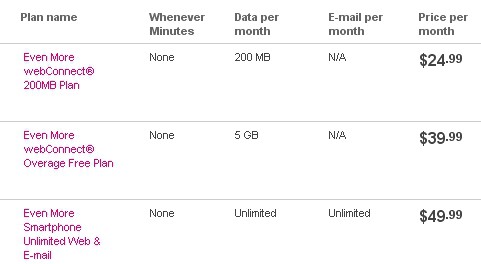
Phillip "The only New Deal my cable company brought to the table was a $150 monthly broadband bill for exactly the same level of service I had when paying $50" Dampier
Joe, a regular Stop the Cap! reader noticed the National Review this morning published another one of their “in the pocket of big telecom” editorials proclaiming Net Neutrality is “anti-consumer.” Right into the first paragraph, it was clear the editors either fundamentally misunderstand the reality of today’s broadband industry or honestly didn’t care as long as it suited their business-friendly agenda.
Readers, you need not go along with the charade. While the publishers of National Review can probably afford to buy their way around anything the phone and cable industry can dream up, you probably cannot. What those opposed to Net Neutrality frame as “freedom from government intrusion” is in reality an attempt to keep your broadband provider from screwing around with your connection in hopes of charging you more for the same service you used to have.
Turn on your TV these days and within minutes you are likely to see several commercials from your local cable, satellite, or telecommunications company trying to convince you that their cable, DSL, or mobile broadband services are superior to those of their competitors. That’s because the market for broadband service is robustly competitive: If service providers didn’t advertise, they would lose business.
Actually, most of the advertising I see on my television comes from free ad inserts Time Warner Cable hands themselves during ad breaks on national cable channels. My local phone company, Frontier Communications, hasn’t advertised on television for quite awhile. The mobile broadband advertising I see fights over coverage and who has the coolest new device. They aren’t advertising on price because they almost all charge exactly the same $60 for 5 GB of usage per month.
None of this represents “robust competition” when one of the players on the wired side is absent from the airwaves and the wireless folks have convenient cartel-like pricing for wireless broadband.
They would also lose business if they did something that made their customers unhappy, such as slowing or blocking the delivery of popular content over the Internet. Or they might gain customers if they created a model that, for a fee, guaranteed uninterrupted high-speed access to certain services, such as telemedicine, video conferencing, or some other use of the Internet we have yet to imagine. This competition directs broadband toward its most efficient uses. It is pro-consumer in that it allows for the proliferation of choices and pressures companies to offer a variety of pricing options.
Of course, the editors who wrote this did not have to fight back a 300 percent rate increase with an Internet Overcharging scheme that would have limited broadband access in at least five cities to start. Let’s test their theory by asking a few questions. First, did anyone ask for this kind of pricing to begin with? Answer: No. Second, did the plan make customers unhappy? Answer: Emphatically yes. Third, upon hearing from customers that they did not want this kind of pricing, did they discard the plan? Answer: Not on your life. Fourth, did it take two members of Congress to drive the company to finally pull back their plan? Answer: You bet.
Now ask the same types of questions about slowing down your web connection to make room for the neighbor up the street willing to pay more to get more while you enjoy less for the same price you’ve always paid.
Lesson learned: when you effectively have a duopoly or monopoly in your market, you don’t have to listen to customers — they have to listen to you. Indeed, even where competition exists, there is every indication the competitors would themselves increase prices or limit service to rake in additional revenue. That happens routinely even in more competitive industries like the airlines — something you realize when you try and check bags and are asked for a credit card. In Canadian broadband, foreshadowing a non-Net Neutral USA, when one player limits usage and throttles connections, the competitor more often than not joins in.
The other fallacy raised in this useless editorial is that Net Neutrality somehow bars companies from offering all of those wonderful innovative Internet applications. It’s a common talking point straight out of the industry’s playbook. Nothing precludes the broadband industry from expanding and improving their networks to offer all of these services. Under Net Neutrality, they simply wouldn’t be allowed to do it on the backs of their other Internet customers, whose connections are automatically impeded to make room for that “innovation.” The saddest part is that the only innovation at work here is price-gouging customers instead of upgrading networks.
It would be a huge mistake to impose by fiat a single business model on the carrier side of the Internet.
Tell that to AT&T and Verizon who have exactly the same pricing in their business model for mobile broadband service. Is it a huge mistake for them?
Specifically, they want the government to prohibit broadband providers (such as Comcast) from discriminating against content providers (such as Google) by, for instance, charging them different rates for different levels of network service. They argue that, in the absence of such regulation, broadband providers can act as self-appointed censors, slowing down or blocking content they don’t like. Keep in mind that in no instance has this actually happened. So far, broadband providers have acted only to slow down noisome bandwidth hogs in order to manage traffic and ensure a high quality of service for the majority of their customers. Net-neutrality proponents counter that other customers — those unhappy about the slowdowns — lack meaningful options; that is, that the market for broadband service is not sufficiently competitive.
It is -shocking- the government would want to make sure broadband providers don’t block or discriminate against other people’s content. We can’t have that!
The National Review needs to consider studying up on history. The cable industry, for example, is notorious for blocking competitor access to its content. To this day, the industry is fighting to keep the cable networks they own off competitors’ lineups. The same company that provides your broadband service wants to make sure their telephone competitor cannot show a regional sports channel they own. At least one broadband provider in the United States tried to block competing Voice Over IP phone companies from being used on their broadband service. The same “blocking” mentality popped up in Canada where a broadband provider purposely blocked a website critical of that company. Want access to cable programming online but don’t have a cable-TV package? Good luck. TV Everywhere projects are specifically designed to block non-cable TV customers from accessing that programming online.
National Review‘s afterthought admission that providers like Comcast were diddling with customers’ Internet speeds is waved away as somehow the fault of bandwidth piggies, another common meme in the talking points packet provided by the broadband industry. Never mind the company had effectively spied on customers to determine what they were doing with their connections, that they first denied reports they were throttling, effectively throttled everyone — piggies or not — and then quickly stopped when the FCC protested. If Comcast wasn’t doing anything wrong, why not inform customers first? After all, the “majority of customers” would want throttling to preserve their “high quality of service,” right?
Of course they don’t, and when customers found out the company charging them good money to provide a service was also trying to systematically reduce its value with speed throttles, they howled in protest. Who knows what online application would fall next to the throttle?
This would effectively mean applying to broadband providers the rules designed for landline telephone companies in the 1930s. We know Obama wants to emulate FDR, but this is getting ridiculous.
Oh now see how they tried to be funny with the slap against Obama and FDR? The National Review would have been the magazine defending the railroad robber barons and utility trusts — unregulated monopolies — back during FDR’s day. They’d be just as wrong then as they are now. The only New Deal my cable company brought to the table was a $150 monthly broadband bill for exactly the same level of service I had when paying $50.
The current regulatory framework for broadband was constructed by Michael Powell’s Republican-majority FCC, classifying broadband as an “information service.” It was bureaucratic incompetence because it relied on vaporware authority that a court found, to nobody’s surprise, didn’t exist. The court does recognize the FCC’s authority to regulate “telecommunications services,” so by simply reclassifying broadband as such, the basic question of authority is solved. The National Review pretends this will automatically mean 1930s-like regulations as applied to copper wire-phone companies, but that’s not true. The National Review simply doesn’t want the FCC to have any authority in the first place.
But the FCC’s authority to reclassify broadband to suit its desires is also open to legal challenge. As a result, we are sure to hear louder calls for Congress to regulate the Internet or to grant the FCC the explicit authority to do so. These calls should be ignored. The Internet has thrived in the absence of homogenizing federal regulations, and this organic development should be allowed to continue so long as competition can act as a check on anti-consumer practices.
The calls to enshrine Net Neutrality, stop Internet Overcharging, and force open broadband markets and expand service all do not come in a vacuum. They are ideas born from past provider abuses that have demanded consumer protections in response. Who would have dreamed up Net Neutrality if AT&T’s Ed Whitacre didn’t insist Internet traffic could not use his pipes for free. What about when the industry started toying with developing premium tiers of service that relied on slowing down the connections of their other paying customers. Why worry about forcing markets open to additional competition? Oh yeah, because of statements like those from Landel Hobbs (Time Warner Cable COO) who told investors Time Warner Cable could use its market position in broadband to jack up prices whenever they chose. And they did.
The National Review‘s “hands off” attitude is the same one they’ve had towards banks, and now every American is paying for that mistake. Let’s not repeat it.
Besides, as it stands these companies compete vigorously against one another in a way that is beneficial to consumers. If one of them makes an unpopular business decision, its customers can go elsewhere. If, however, an unelected FCC chairman dictates uniformity in the services these companies provide, then there is nowhere Americans can turn for innovations the government may have strangled in the cradle.
Where exactly do consumers in rural areas go for alternative broadband when their monopoly phone company provider limits their service or charges them confiscatory pricing? Where do residents go when both providers limit service?
Consumers have far more power to deal with the “unelected FCC Chairman” than dealing with intransigent phone and cable companies. Elections every few years have consequences. There are no elections for Comcast, Verizon, Cox or AT&T. They’re effectively Providers-for-Life in the communities they serve.
The National Review has little to fear from a broadband dark ages where innovation disappears. Somehow, an industry that rakes in billions in revenue every year will manage to get by living under basic guidelines that require them to earn their money fairly and spend some of those profits to keep up with very profitable demand. They’ll sue anyway, of course. But that could buy us enough time to spur additional competitive choices in a duopolistic market for broadband, helping put to work those free market principles of fierce competition the National Review believes in.
[Article Correction 4/15/2010: The original piece laid blame for the classification of broadband as an “information service” on former FCC Chairman Kevin Martin. In fact, the classification was made by former FCC Chairman Michael Powell, who served during the first term of the Bush Administration. We regret the error.]


 Subscribe
Subscribe









